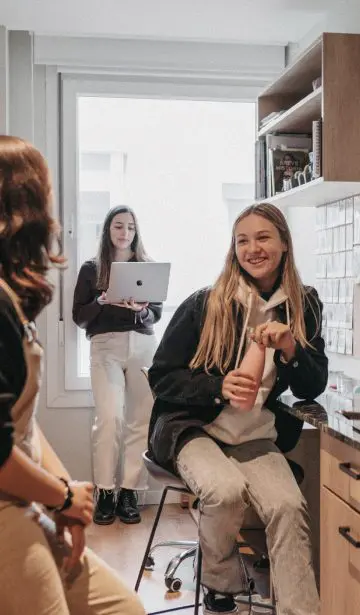
Should you listen to music while studying?
Listening to music is beneficial for the brain. In fact, research has found that learning to play a musical instrument as a child improves cognitive performance in various ways.

Extracurricular work placements are those which students can do voluntarily, ones which the student undertakes because they want to and not because they have to, although these work placements usually have the same purpose as obligatory work placements.
It’s important to note that because these work placements are voluntary they cannot be validated for an elective subject, although mandatory curricular work placements can usually be validated depending on the specifications of the syllabus of the chosen degree.
Just because they aren’t mandatory doesn’t mean students should dismiss the possibility of doing an extracurricular work placement. They are a good opportunity for students to take on additional responsibility and show commitment to their area of study. To get started, the company where you are going to do your work placement has to come to an agreement with the university.
Here’s some more information to clarify the difference between curricular and extracurricular work placements:
Extracurricular work placements can take place at the time which best suits the student as they are not mandatory and don’t have to be completed at a specified moment in the course. To decide when the work placement will take place, the company where you will do the placement has to come to an agreement with the university where you are studying. You can do a work placement at the same time as studying, or do the work placement during your summer holidays to be able to dedicate as much time to exams and coursework as you do later to your work placement.
Firstly, the company where you want to do your work placement must have the option available and places available for students to be able to apply.
In most cases this type of work placement, due to being outside of the obligatory curriculum, must be arranged by the student together with the work placement coordinator. In other words, it’s up to the student to look for work placements and find out whether the company has a covenant with the university or not as this could accelerate the process of arranging the placement. Once the student has found a placement they should speak to the work placement coordinator so they can take care of the necessary paperwork.
These voluntary work placements are often called internships. As we have already explained, these internships aim to give students who have finished or who are about to finish their studies the opportunity to apply the knowledge they have acquired during their studies in a work environment, as well as getting experience in the sector in which they have chosen to train.
These internships often involve financial remuneration in return for the work of the student and are a great opportunity to get some work experience.
In addition to bachelor’s degree work placements, which we have talked about throughout this post, we also need to mention master’s degree work placements and work placements for research and PhD students.
At micampus we hope that this article answers any questions you may have about extracurricular work placements.

Check the prices for micampus residences for the 2026/2027 academic year and secure your place in advance.
The best student accommodation options, all-inclusive and with no surprises.